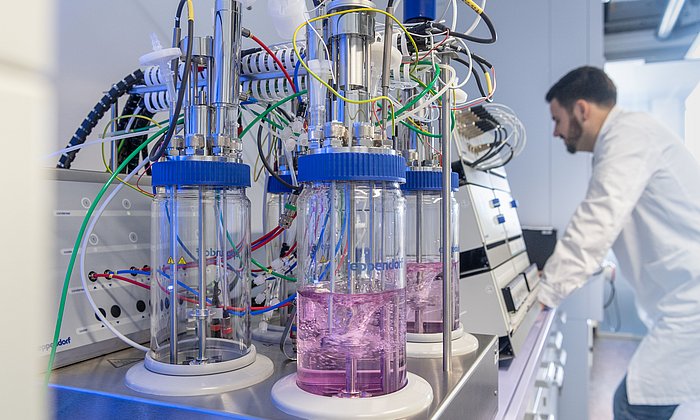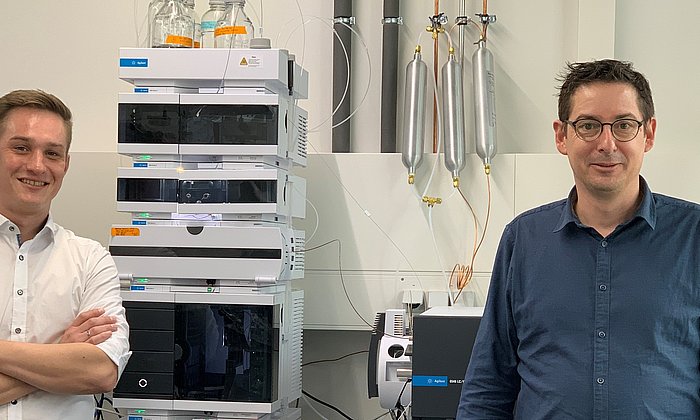NewIn: Michael Zavrel
Hands-on expertise for the bioeconomy
Michael Zavrel worked in industry for thirteen years, most recently as site manager and head of development at Clariant in Planegg near Munich. He was no stranger to Straubing either, as it is home to a demonstration plant for industrial bioprocesses of one of his earlier projects. But being a regular in the lecture hall is something new for the 43-year-old, who studied Chemical Engineering at TUM and completed his doctorate at RWTH Aachen University. In the beginning, he often sat at his desk until late at night to prepare his lectures. Routines have now been established. The lab, which was empty at the beginning, with no pipettes, spatulas, or bioreactor, is now fully equipped.
Fuels from renewable resources
Michael Zavrel is working on the important goal of transforming a fossil-based economy into a bioeconomy. This is a major challenge for our society, he says. An essential building block for this transformation is the sustainable production of new products, including fuels, from renewable resources.
Ideally from waste materials, such as wheat straw, so that there is no competition between energy and food supplies. This is what Michael Zavrel specializes in. At the Straubing campus, he can contribute his industrial experience in process engineering. According to Zavrel, there are many processes that work in the laboratory, but the "missing link" is the transfer to a large scale.
At Clariant, he worked on developing and scaling up bioprocesses. "It is always a pleasure to see how processes that have been developed on a millilitre level are later realized on a ton scale," he says and is therefore also looking forward to the latest project in Straubing: a multi-purpose demonstration plant for biotechnological processes is being built in the port there, where processes for the production of biofuels and other sustainable products can be tested.
International projects on biofuels
Michael Zavrel also wants to apply his knowledge internationally: He is in contact with colleagues in Kenya to use the invasive species water hyacinth, which causes massive damage to the local ecosystem, as biomass for energy production. Projects with partners in Brazil are also in the pipeline.
Around the world, research into the use of waste and residual materials is extremely important. Most of the ethanol that is currently blended with petrol as a biofuel still comes from sugar beet or sugar cane, i.e. from raw materials that are also used for food. There are still too few processes for producing large quantities of biofuels from waste and residual materials.
The same is true for biopolymers. What has been successful in the laboratory, namely the production of biodegradable polymers based on renewable raw materials, is still extremely difficult and expensive on a large scale. Here, too, Michael Zavrel's many years of practical experience in bioprocess engineering will be helpful.
Technical University of Munich
Corporate Communications Center
- Dr. Jeanne Rubner
- presse@tum.de
- Teamwebsite
Contacts to this article:
Prof. Dr.-Ing. Michael Zavrel
Professorship Bioprocess Engineering
Technical University of Munich
Campus Straubing
michael.zavrel(at)tum.de



